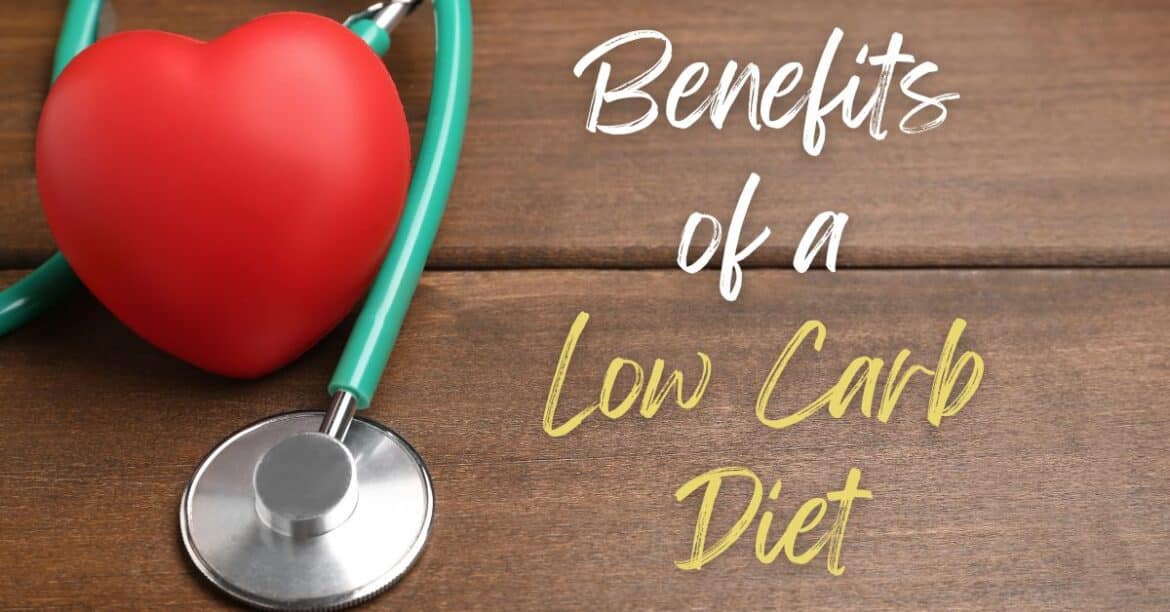In the vast landscape of dietary choices, few trends have captured as much attention as the low carb diet. But what exactly can embracing a low carb lifestyle do for you? From shedding excess pounds to slashing your risk of heart issues, this article unpacks the benefits of embracing a low carb diet.
Reducing Appetite and Losing Weight
One of the striking benefits of going low carb is the automatic reduction in your appetite. Say goodbye to pesky cravings because with fewer carbs on your plate, you’re diving into more protein and fat. That combo helps keep hunger at bay, which leads to a natural decrease in calorie intake without having to consciously count every bite!
Going low carb can be like hitting the turbo button on your weight loss journey. Sure, some of the initial drop on the scale is just water weight (due to removal of excess sodium in the kidneys and excess water in the organs), but it’s still super motivating! You’ll be shedding pounds while keeping your muscle mass and metabolism happily humming along.
Now, let’s talk about that sneaky fat lurking around your middle and organs. Yep, we’re talking about visceral fat—the stuff that can spell trouble for your health. Think heart issues, diabetes, and more. Well, good news: a low carb diet has been shown to kick that visceral fat to the curb, making room for a healthier, happier you!
Reducing Risk of Heart Disease and Type 2 Diabetes
Another major advantage of a low carb diet is its ability to combat heart disease and type 2 diabetes.
Low carb diets do a fantastic job at increasing levels of HDL cholesterol, commonly known as the “good” cholesterol. It also significantly lowers triglycerides, the main fat-carrying particle in the bloodstream. Higher levels of HDL cholesterol (especially relative to “bad” LDL cholesterol) and lower levels of triglycerides reduce the risk of heart disease.
For those with diabetes or insulin resistance, following a low carb diet can truly be a game-changer. Low carb diets can drastically lower blood sugar and insulin levels, making diabetes management not only possible, but also more efficient. Improving glycemic control may reduce the need for insulin and/or hypoglycemic medications. In fact, the ketogenic diet was the main intervention for diabetic patients prior to the invention of insulin! There is emerging evidence that a ketogenic diet can also improve health and adverse events in those with type 1 diabetes.
Lowering Blood Pressure
When it comes to high blood pressure (also known as hypertension), the body takes a beating, and it can pave the way for some pretty serious health issues like strokes or heart attacks. Processed foods are often loaded with sugar and sodium, the dynamic duo behind soaring blood pressure levels. By dialing down on these carb-heavy culprits, low carb diets can work wonders in helping to maintain healthy blood pressure levels. So, next time you’re reaching for a snack, think twice about those processed goodies—they might just be putting extra strain on your heart!
Benefits for the Brain
A low carb diet doesn’t just do wonders for the body—it’s a brain booster too! When carbs take a backseat, the body switches gears and starts converting fat into energy powerhouses called ketones. These little guys are like super-fuel for the brain. They zip through the blood-brain barrier with ease and give brain cells a major energy boost, helping them work smarter and more efficiently. So, if you’re looking to give your noggin an extra edge, a low carb diet might just be the ticket!
For years, the ketogenic diet has been a go-to treatment for childhood epilepsy, showing remarkable success in reducing seizures—even for those who haven’t responded well to various medications. The Charlie Foundation is an excellent resource for delving deeper into this therapy.
But wait, there’s more! Recent studies suggest that low carb diets might hold promise for other brain-related conditions too. From Alzheimer’s to Parkinson’s and beyond, researchers are exploring how these diets could offer relief and support.
And it’s not just about medical conditions. Even for those without neurological issues, a low carb diet could be a game-changer. It’s been linked to improved mental clarity, sharper focus, and could even help with mental health disorders while staving off cognitive decline. Talk about a win-win!
Conclusion
In this article, we’ve explored how adopting a low carb diet can lead to significant improvements in health. Let’s recap the main points:
- Low carb diets naturally curb appetite and reduce calorie intake, making weight loss easier.
- They also tend to increase levels of “good” HDL cholesterol in the body.
- For individuals dealing with diabetes or insulin resistance, cutting back on carbs can effectively lower blood sugar and insulin levels.
- By minimizing processed carbohydrates, low carb diets can help bring down high blood pressure.
- Additionally, these diets show promise in enhancing cognitive function and are even utilized as treatment for certain brain conditions like Alzheimer’s and epilepsy.
Remember, while low carb diets offer numerous potential health benefits, it’s essential to seek guidance from your doctor before making any significant dietary changes. Your healthcare provider can provide personalized advice tailored to your individual needs and health status.
Ready to begin? Check out How to Get Started with Low Carb
Sources:
The Potential Health Benefits of the Ketogenic Diet: A Narrative Review
Harvard School of Public Health: Low-Carbohydrate Diets
Ten Scientifically Proven Benefits of Low-Carb Diets
Psychology Today: 8 Reasons to Try Low-Carb for Mental Health

